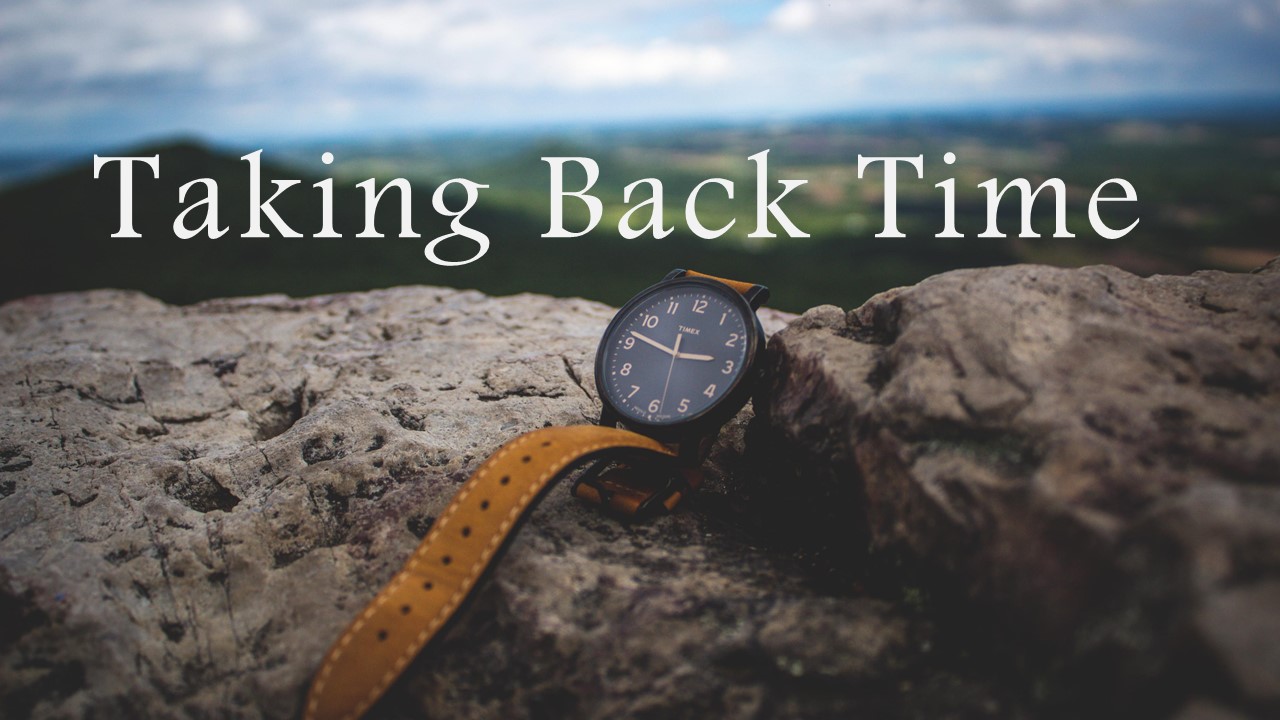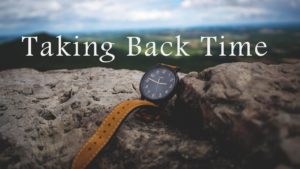The importance of self control to overcome procrastination

 Exercise self-control. While analyzing, prioritizing and biblicizing are all necessary steps, exercising self-control with your daily decisions will be essential to overcome procrastination. This is the purpose of the phrase in the Ephesians 5:17 passage—“do not be foolish.” The fool in the Bible describes the one who should have known better, but did not. Despite being entrusted with the necessary knowledge to change, he stubbornly refused to live differently. He repeatedly did the same thing the same way, but for some reason expected a different result. This is a perfect description of the chronic procrastinator. In the past, he or she may have run out of time to give his or her best effort to the task or relationship, and though they should learn from such history, they sadly repeat the same error and run out of time again. The memory word to help the procrastinator make these necessary changes is the word exercise. In order to break his foolish habits, he will need to exercise three elements of self-control.
Exercise self-control. While analyzing, prioritizing and biblicizing are all necessary steps, exercising self-control with your daily decisions will be essential to overcome procrastination. This is the purpose of the phrase in the Ephesians 5:17 passage—“do not be foolish.” The fool in the Bible describes the one who should have known better, but did not. Despite being entrusted with the necessary knowledge to change, he stubbornly refused to live differently. He repeatedly did the same thing the same way, but for some reason expected a different result. This is a perfect description of the chronic procrastinator. In the past, he or she may have run out of time to give his or her best effort to the task or relationship, and though they should learn from such history, they sadly repeat the same error and run out of time again. The memory word to help the procrastinator make these necessary changes is the word exercise. In order to break his foolish habits, he will need to exercise three elements of self-control.
While self-control may conjure up a self-help kind of mentality, it is actually given by the Holy Spirit, being a part of the fruit of the Spirit:
But the fruit of the Spirit is love, joy, peace, patience, kindness, goodness, faithfulness, gentleness, self-control; against such things there is no law. And those who belong to Christ Jesus have crucified the flesh with its passions and desires
The Old Testament book of Proverbs adds these warnings: “A man without self-control is like a city broken into and left without walls,” and “A wise man keeps himself under control.” Self-control is the mark of the wise, not the foolish. Once the procrastinator has worked through all the steps of discovery mentioned earlier, he will still need to do the hard work of exercising self-control regarding legitimately pursued pleasures. If he doesn’t learn to control what he enjoys, he will tend to put off his important priorities and fall back into the habit of procrastination.
Exercise self-control by doing the hardest task first.
Years ago I discovered that, if the first task I chose to do was the one I didn’t want to do, I usually had time left over to do the things that I enjoyed. But, if I started with the things that I enjoyed, I never seemed to have the time to do the difficult tasks that I was avoiding. The procrastinator will often choose to do the things he enjoys first and put off the more difficult task for another day. The struggling student plays video games before he studies for tomorrow’s test. The stressed out dad races home from work to fit in nine holes at the golf course instead of spending time with his demanding 3-year old son. We tend to do the task we enjoy the most first, and—because we enjoy it—we find that we haven’t left sufficient time for the task least preferred. Self-control is needed to take on the hardest task first. I have friends who told their teenage kids, “Always eat the frog first.” Spirit-empowered self-control is needed to consistently develop that pattern. A simple way to do this is to make a list of your unfinished tasks, and then, after you have prioritized them, take the one you are least fond of, and move it to the head of the list. Once you have completed the least pleasant task, move on to the others. You will find greater fulfillment in the pleasures you genuinely enjoy when you know that the difficult challenges are behind you, not waiting for you on tomorrow’s calendar.
Exercise self-control by doing what you do in moderation.
In his book Respectable Sins, author Jerry Bridges describes self-control as follows:
[Self-control is] control of one’s desires, cravings, impulses, emotions and passions. It is saying no when we should say no. It is moderation in legitimate desires and activities, and absolute restraint in areas that are clearly sinful [emphasis added].
Time is a limited resource. The wise person understands this truth and practices moderation with those things he legitimately enjoys. The fool does not see the need for moderation. He will binge on the movies he enjoys and push back those unfinished tasks and troubling relationships until tomorrow. The fool believes that time is his own to do with as he pleases. He recoils at the thought of accountability. This is why the Bible teaches that the fool has said in his heart, “there is no God.” Sadly, the procrastinator makes the mistake of thinking of himself as sovereign. Until this is corrected, he will never see the need to exercise the activities he enjoys in moderation, and he will push back his responsibilities for another day. To break this habit, you must “learn to say no when you should say no.” You must remember that God alone is sovereign. You are a steward of time he has entrusted to you, not the owner. By the Spirit’s power, exercise your pleasures in moderation so that you can make the best use of your time to fulfill your God-given responsibilities.
Exercise self-control to persevere when you are discouraged.
Mason Cooley was an American aphorist known for his brief, witty statements. He is reported to have said, “The time I kill is killing me.” One of my favorite statements attributed to him was:
Procrastination makes easy things hard and hard things harder.
When we procrastinate, it feels as if things just got easier, because we don’t have to do the work right now. But in truth we just made a decision that will make tomorrow more difficult than it would have been. When tomorrow arrives, you not only have that day’s work, but yesterday’s as well. As you push two days of unfinished work into the future, the mountain grows and becomes more difficult to scale. It’s easy to see how discouragement can creep in.
When Hurricane Sandy slammed into the New Jersey Coast, our church participated in the cleanup effort. We partnered with Samaritan’s Purse in helping people restore homes to their previous condition. Atlantic City, New Jersey is built on a barrier island just off the mainland. The storm surge pushed four to six feet of water across the breadth of the island, damaging everything beneath the high-water mark. Marge was an elderly woman on the west side of the island. Our supervisor, having visited the location, warned us that Marge was a hoarder; care would need to be taken to not offend her in the clean up. Marge lived on the second floor of her home because you could not walk through the first floor. Every room was filled with her effects: years’ worth of newspapers, clothes, bedding, stuffed animals, and various other possessions sat soaked in Sandy’s aftermath. A crew of 25 volunteers worked the entire day, pulling those waterlogged belongings to the curb. I can still remember how hard it was for Marge to make a decision about what to do with her things, even though they were damaged beyond repair. Early on, the decisions were laborious, but her spirits lifted as the day progressed. She seemed younger, more talkative. She smiled as we pulled twenty years of hoarding to the curb for disposal. The local news station interviewed her, and she expressed gratitude to her “new-found friends” who had “done for her what she could not do for herself.” Her relief was palpable. Decades of indecision had paralyzed her ability to make a decision.
When the procrastinator keeps pushing back decisions that need to be made, his life becomes overwhelming—like the first floor of Marge’s apartment. It’s easy to grow discouraged when our failure to make decisions renders our lives a soggy living space overflowing with trash. This is where self-control needs to step in. Don’t succumb to your desires, cravings and impulses, no matter how insistent they are about being obeyed. Self-control walks by faith, not by feeling. By taking small steps, it perseveres in the face of discouragement. So don’t succumb to that overwhelming feeling. Just get started. Take your first step today.
Taken from Taking Back Time: biblical strategies for overcoming procrastination
